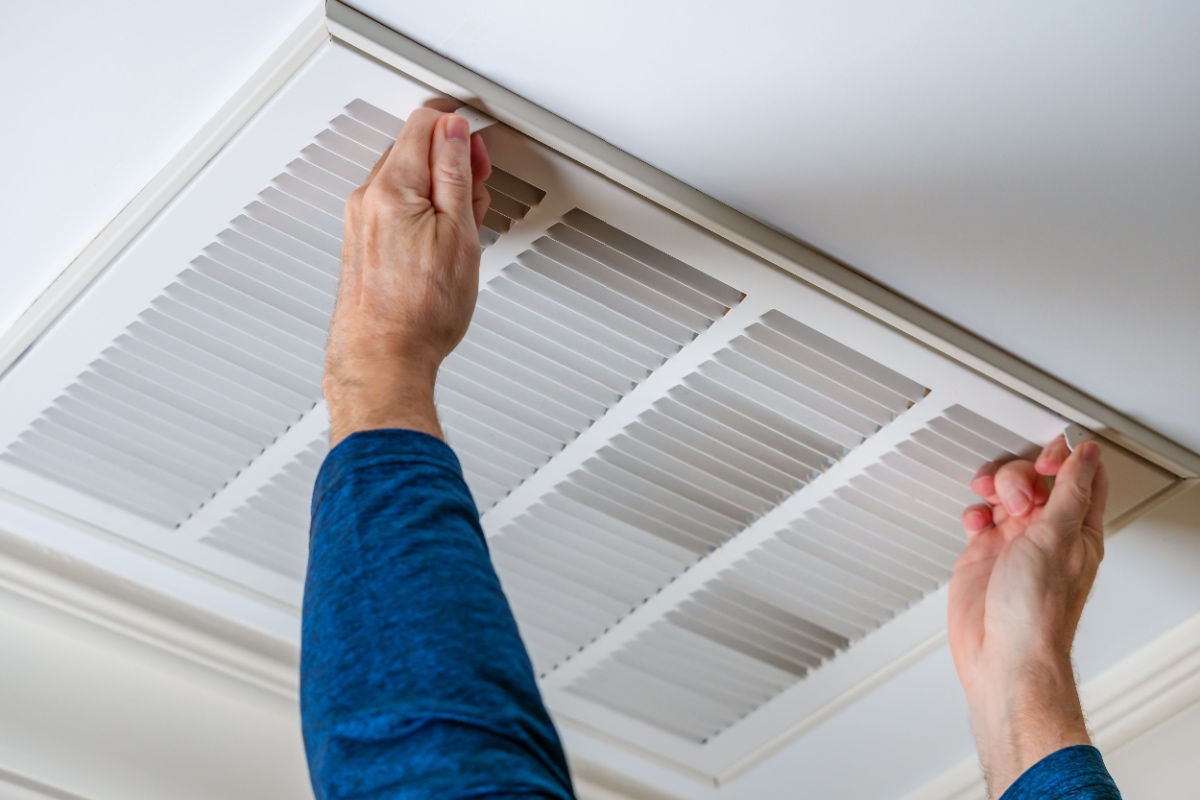Closing the vents in unused rooms is logical to save energy and reduce heating or cooling costs. After all, why waste resources on a space no one is using? While this idea may appear practical, it can backfire, leading to higher energy bills and damaging your HVAC system.
A well-installed heating, ventilation, and air conditioning (HVAC) system from a company like Infinity Heating and Cooling is designed to work, distributing air evenly throughout your space. Closing vents disrupt this balance, creating issues that affect the efficiency and longevity of your system. If you have been closing vents to save money, it’s worth reconsidering.
How Closing Vents Can Lead To Bigger Problems
Though it may seem counterintuitive, closing vents in unused rooms can create costly and problematic outcomes. Here’s why:
1. Increased Pressure In Your HVAC System
Your HVAC system is designed to circulate air throughout your home. When vents are closed, the air has fewer outlets to escape, increasing the pressure in the ductwork. This excess pressure forces your HVAC system to work harder than necessary, straining components such as the blower motor and leading to premature wear and tear.
2. Reduced Energy Efficiency
Contrary to popular belief, closing vents doesn’t lower your energy consumption. Your system continues to produce the same amount of heated or cooled air, regardless of whether the vents are open or closed. Instead of saving money, you might spend more as your system works overtime to compensate for the imbalance caused by closed vents.
3. Uneven Temperature Distribution
Closing vents disrupt airflow, creating hot and cold spots throughout your home. This uneven temperature distribution can cause the heating and cooling system to cycle on and off more frequently, wasting energy and making it difficult to maintain a comfortable indoor environment.
4. Increased Risk Of Duct Leaks
When pressure builds up in the ductwork due to closed vents, it increases the likelihood of air leaks. Duct leaks cause conditioned air to escape before reaching its intended destination, reducing efficiency and driving up energy costs.
5. Frozen Evaporator Coils Or Overheated Furnace
For homes with central air conditioning, restricted airflow can cause the evaporator coils to freeze, leading to system breakdowns and expensive repairs. Similarly, during the heating season, closed vents can cause the furnace to overheat, triggering safety shut-offs or damaging key components.
6. Compromised Air Quality
When airflow is restricted, your HVAC system may struggle to filter and circulate air effectively. It allows dust, allergens, and other contaminants to build up in your home. Poor air quality can lead to respiratory issues, allergies, and discomfort for you and your family.
How Skilled Technicians Can Ensure Your HVAC System Runs Smoothly
If you’ve been closing vents or suspect your HVAC system isn’t performing as it should, professional technicians can help address the root of the problem. They’ll thoroughly inspect your system to ensure that every component functions correctly and that the vents and ductwork are optimized for efficient airflow.
- System Assessment – Skilled technicians will check for issues like duct leaks, pressure imbalances, or restricted airflow caused by closed or partially blocked vents.
- Component Testing – They’ll inspect critical components such as the blower motor, filters, and thermostat to ensure your HVAC system operates at peak performance.
- Ductwork Evaluation—Professionals will assess the condition of your ducts, seal any leaks, and ensure they’re properly sized and designed for your home.
- Vent Adjustment – Rather than closing vents, technicians may recommend alternative solutions, such as balancing airflow across your system to improve energy efficiency without compromising comfort.
By working with experienced HVAC professionals, you can ensure your system is tailored to your home’s unique needs, saving energy and extending the lifespan of your equipment.
Rethink Your Approach To Comfort And Efficiency
Instead of closing vents in unused rooms, consider alternative ways to improve your home’s energy efficiency without overworking your HVAC system. For example, investing in a programmable or smart thermostat allows you to adjust the temperature based on your schedule, ensuring you’re not heating or cooling rooms unnecessarily. Similarly, zoning systems can divide your home into different areas, each with its thermostat, providing customized comfort without disrupting airflow.
Sealing drafts, improving insulation, and maintaining your HVAC system are other practical steps to reduce energy usage while preserving comfort. These measures will achieve better results than simply closing vents, which often creates more problems than it solves. Instead of risking damage and inefficiency, focus on optimizing your system with the help of HVAC professionals like us. You can enjoy a comfortable home and lower utility bills without compromising your system’s performance by ensuring proper airflow and adopting smarter energy-saving strategies.
For more information on our HVAC services, contact Infinity Heating and Cooling at (702) 291-2000 or fill out our form online.


